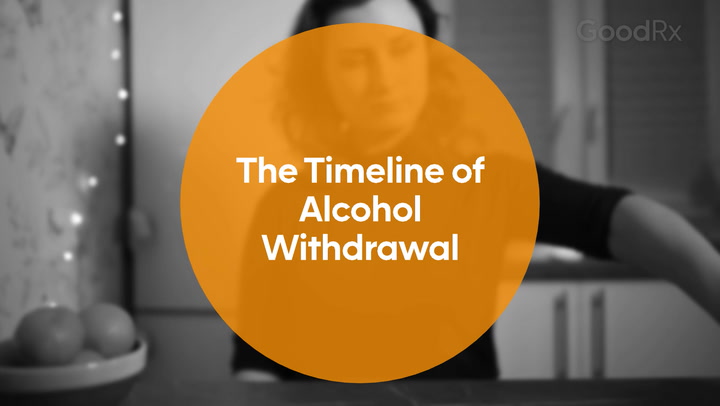
How Alcohol Weakens Your Immune System
Key takeaways:
Heavy drinking weakens your immune system. This makes it easier to get ill and harder to recover from illness.
Alcohol affects the immune system by decreasing the number and function of white blood cells. This impacts your gut, lungs, and liver, and disrupts your ability to fight infections.
Even a single episode of binge drinking can lower your ability to fight infections for the next 24 hours.
Table of contents

You may be familiar with alcohol-related health problems, such as liver disease or cognitive impairments. But did you know that there’s evidence that alcohol can weaken your immune system, too?
A weak immune system puts you at higher risk for illnesses. Examples include certain cancers, as well as pneumonia and other respiratory problems. A weakened immune system can also lead to complications after surgery and poor recovery from injuries (like broken bones).
How does alcohol affect your immune system?
Alcohol may affect your immune system differently depending on how much alcohol you drink. There’s some evidence that light to moderate drinking of wine or beer may actually help your immune system to function.
Search and compare options
But heavy drinking can harm your immune system in multiple ways. Heavy drinking can directly affect immune cells, as well as your gut, lungs, and liver. This article will focus on the effects of heavy alcohol drinking on your immune system.
Direct effects of alcohol on the immune system
Your immune system is made up of different kinds of immune cells, which each play an important role in fighting infections. White blood cells are especially important in fighting off viruses and bacteria. Chronic and heavy alcohol drinking can lead to:
Decreased number of white blood cells: Animal and human studies have shown that heavy drinking can lower the number of white blood cells. That means your body has fewer immune cells to help fight off infection.
Decreased function of immune cells: Heavy drinking also affects the ability of immune cells to function normally. So, the immune system has a harder time “remembering” past infections and preventing those infections from happening again.
Lower response to vaccinations: Studies have shown that people who drink a lot of alcohol don’t develop as much immunity from vaccines, like the hepatitis B or tuberculosis vaccines.
So, heavy alcohol drinkers can develop immune system changes that lead to longer-lasting illnesses, more intense symptoms, and more severe infections.
Alcohol and the gastrointestinal tract
Your digestive tract is one of the first lines of defense against infections. Your gut is lined with trillions of tiny organisms, most of them bacteria. These bacteria are known as your microbiome. Your microbiome helps protect your immunity by:
Blocking bad germs: The “good bacteria” in your microbiome make it harder for bacteria and viruses to enter the gut and cause infection.
Regulating the development of immune cells: Having the right kinds of bacteria helps your body make more immune cells to fight off infections.
Alcohol and health: From mood problems to cancer, alcohol can affect more than just your liver. Learn about short-term and long-term effects of alcohol.
How to boost your immune system: There’s no miracle drug, but there are science-based ways to help your immune system function — and a few things to avoid.
Recovering from alcohol use disorder: A path to recovery comes in many forms, like support groups and residential treatment centers.
Heavy alcohol drinking can disrupt the healthy balance of organisms in your gut, leading to overgrowth of more harmful types of bacteria. This prevents the good bacteria from making immune cells and helping your immune system.
Alcohol can also damage the gut lining. And a damaged gut lining means your body’s defense against infections is weakened. This makes it easier for germs to enter the gut and get into the bloodstream.
Alcohol and the lungs
People with alcohol use disorder are more likely to develop lung infections, like bacterial pneumonia, tuberculosis, and respiratory syncytial virus (RSV). That’s because alcohol damages the lining of the lungs. And that makes it harder for the lungs to fight off viruses and bacteria. Drinking alcohol can also weaken the types of immune cells that usually fight off lung infections.
Read more like this
Explore these related articles, suggested for readers like you.
Alcohol and the liver
The liver plays an important role in your immunity. The liver makes proteins that help regulate immune function. Chronic alcohol exposure can damage the liver and reduce the production of those proteins, weakening the body’s ability to fight infections.
Heavy alcohol drinking also creates inflammation in the liver. This inflammation can disrupt your immune system by over activating some immune cells and making it harder for others to function. This imbalance also makes it harder for your body to prevent illnesses and stay healthy.
How much alcohol does it take to weaken your immune system?
This depends on how often you drink, how much you drink, and your gender. Studies show that 6 months of heavy drinking can lower the number of lymphocytes, a type of white blood cells.
Even occasional binge-drinking episodes can weaken your immune system. Here’s the definition of binge drinking:
For women: having 4 or more drinks per occasion
For men: having 5 or more drinks per occasion
A short period of binge drinking can cause a reduction in lymphocytes. And this reduction is equal to that of someone who has been binge drinking for 6 months. Even a single episode of binge drinking can make it harder for your body to fight off infections for the next 24 hours.
How long does it take the immune system to recover from alcohol?
The good news when it comes to alcohol and immunity is that some of these effects are reversible. If you abstain from drinking alcohol for 30 days, your lymphocytes can recover back to normal levels.
What happens if your immune system gets too weak?
A weak immune system can put you at higher risk for various medical conditions. As mentioned earlier, your immune system protects your body from unwelcome invaders and certain types of cancers. It also works to heal injuries and other illnesses. Your immune system can’t perform these functions well when it’s weakened.
When alcohol weakens the immune system, it can lead to:
Liver disease or cancer
Respiratory symptoms, such as shortness of breath or virus in the lungs
Post-surgery complications
Slow or incomplete healing of wounds
Listeria infection (a type of food poisoning)
What are signs of a weakened immune system?
If you’re concerned about the impact that your alcohol use is having on your immune system, there are signs you can look for, including:
Frequently getting sick
Unusual infections, like meningitis
Digestive problems
Wounds taking longer to heal than expected
Skin infections
Fatigue (being tired regularly)
If you experience any of these symptoms, you may want to consider talking with a healthcare professional.
How can I make sure that alcohol doesn’t affect my immune system?
To make sure drinking doesn’t affect your immune system, limit how much you drink.
Reduce alcohol intake
Drinking in moderation means:
For men: having 2 or fewer drinks per day
For women: having 1 drink or fewer per day
Drinking in moderation isn’t a matter of averages. You can’t stay under this limit by abstaining from alcohol 6 days out of the week and then having 7 or more drinks on the seventh day. As noted above, binge drinking is especially hard on your immune system.
Seek treatment
If you feel like you can’t control your drinking on your own, you may want to consider seeking addiction treatment. It’s never too late to seek help. For example, depending on your level of alcohol use, quitting drinking may help resolve the first stage of alcohol liver disease. If you’re drinking a lot, stopping or decreasing your alcohol use can also help your chances of not developing severe liver disease.
In addition to psychotherapy, treatment can also include nutritional supplements and dietary guidance, as well as certain medications. It’s important to remember that alcohol can prevent the absorption of nutrients that your body needs, and a balanced diet can improve your immune system and overall health.
Resources for alcohol use disorder and treatment
To receive treatment for alcohol use, talking to a healthcare professional is a good place to start. They may be able to give you prescriptions, provide referrals to therapists, or talk to you about treatment programs. You can also ask your health insurance company for a list of in-network providers. There are also ways to find low-cost options for treatment.
Frequently asked questions
It isn’t recommended to drink alcohol when sick. Alcohol can make you pee more and lead to dehydration. When you’re sick, it’s important to keep hydrated to help your body fight off illness. Alcohol might also make your nose more congested, which will leave you feeling even more uncomfortable. So, alcohol won’t make you feel better when you’re sick.
Alcohol has a complicated relationship with autoimmune disorders. There’s evidence that light to moderate alcohol intake might lower your chance of developing autoimmune disorders. But heavy alcohol drinking is harmful for health and increases the chance of chronic diseases. It can also lead to worse symptoms of autoimmune disorders.
It isn’t common to get sick with a virus or other infection every time you drink alcohol. But drinking alcohol may make you feel sick whenever you drink it. That’s because drinking alcohol can cause sleepiness, lack of coordination, nausea, and vomiting.
The way alcohol makes you feel can vary depending on factors like your:
Age
Sex
Weight
Ethnicity
The bottom line
Heavy alcohol use weakens the immune system, and a weak immune system makes it easier to get sick. However, there are signs that you can look for if you’re concerned that your drinking might be affecting your immunity. Reducing or quitting drinking can lower alcohol-related damage and improve your overall health. Help is available, and it’s never too late to seek treatment.
If you or someone you know struggles with substance use, help is available. The Substance Abuse and Mental Health Services Administration (SAMHSA) offers resources, including a hotline. Call SAMHSA’s National Helpline at 1-800-662-HELP (1-800-662-4357) to learn about resources in your area.
Why trust our experts?



References
Alcohol and Drug Foundation. (2023). Understanding alcohol and our immune system.
Calleja-Conde, J., et al. (2021). The immune system through the lens of alcohol intake and gut microbiota. International Journal of Molecular Sciences.
Centers for Disease Control and Prevention. (2024). People at increased risk for Listeria infection.
Centers for Disease Control and Prevention. (2025). About moderate alcohol use.
Deng, Y., et al. (2021). Effects of acute alcohol intake on nasal patency. American Journal of Rhinology & Allergy.
MedlinePlus. (2023). Pneumonia.
Nagy, L. E. (2015). The role of innate immunity in alcoholic liver disease. Alcohol Research: Current Reviews.
National Institute on Alcohol Abuse and Alcoholism. (2024). Alcohol’s effects on the body. National Institutes of Health.
Osna, N. A., et al. (2017). Alcoholic liver disease: Pathogenesis and current management. Alcohol Research: Current Reviews.
Pasala, S., et al. (2015). Impact of alcohol abuse on the adaptive immune system. Alcohol Research: Current Reviews.
Romeo, J., et al. (2007). Moderate alcohol consumption and the immune system: A review. British Journal of Nutrition.
Sarkar, D., et al. (2015). Alcohol and the immune system. Alcohol Research: Current Reviews.
Shreiner, A. B., et al. (2015). The gut microbiome in health and in disease. Current Opinion in Gastroenterology.
Simet, S. M., et al. (2015). Alcohol’s effects on lung health and immunity. Alcohol Research: Current Reviews.
Substance Abuse and Mental Health Services Administration. (2023). SAMHSA’s national helpline.
Terracina, S., et al. (2025). Alcohol consumption and autoimmune diseases. International Journal of Molecular Sciences.
Wang, X., et al. (2024). Role of immune cell interactions in alcohol-associated liver diseases. Liver Research.





























